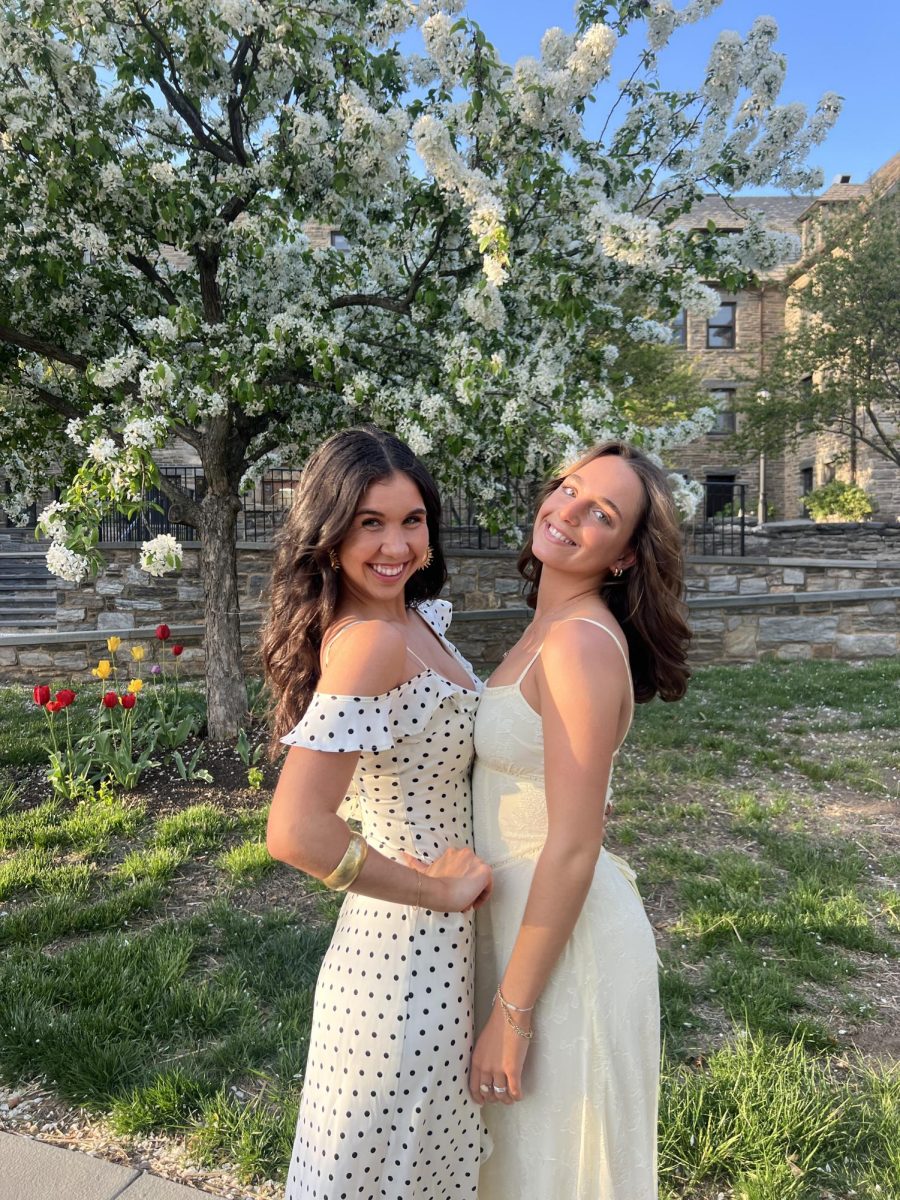“It’s every man’s worst nightmare, getting accused of something like that.”
“Can you guess what every woman’s worst nightmare is?”
On Thursday, Jan. 23, in Falvey 205, students and faculty learned the answer to that question through a screening of Emerald Fennell’s hit film A Promising Young Woman. Released in 2020, the film tells the story of Cassandra “Cassie” Thomas, a middle-aged woman traumatized by the rape and subsequent death of her best friend Nina. Throughout the movie, she walks the line between forgiveness and vengeance for the perpetrators complicit in the rape culture that caused Nina to take her own life.
Dr. Kaley Carpenter, Associate Teaching Professor in the Augustine and Culture Seminar Program, has spent a year setting up both the screening and the panel that was hosted upon the screening’s conclusion. The panelists, whose identities will be kept anonymous, graciously came together to discuss topics that would enlighten Wildcats about the pervasive issue of sexual misconduct in society.
One of the topics that the movie explores is the proverbial “nice guy.” When used in the context of relationships, it denotes a man who uses acts of goodwill so he can be “rewarded” with sexual favors. One of Cassie’s activities is to pretend to be drunk so nice guys at clubs and bars can offer her transport before taking advantage of her in their own homes, where she then reveals her soberness and terrifies them into leaving vulnerable women alone.
Ryan Cooper, one of the film’s main characters and a former medical school classmate of Cassie’s, exemplifies a different type of nice guy. While he comes off as being genuinely charming, funny and accommodating, he is utterly unable to take responsibility for the flaws he is revealed to have when given the chance. His failure to do what is right is depicted as ultimately making him no better than the men who hurt women directly.
Another important topic that the film covers are the effects of internet culture and how it can bring people to justice, but also condemn the innocent. Videos and screenshots can incriminate perpetrators and reveal who the complicit bystanders are, as well as be used to bully a victim into dropping charges, just like they do in this movie.
One of Cassie’s targets is a defense attorney named Jordan Green, who used to dig up dirt on victims of sexual assault to win whatever case he was hired for. He describes the effectiveness of this tactic in the age of the internet perfectly to Cassie.
“In the old days we used to go through a girl’s trash,” he said. “Now? One drunk photo at a party. Oh, you wouldn’t believe how hostile that makes a jury.”
As the movie explains, this sort of tactic goes hand-in-hand with slut-shaming behavior. Slut-shaming involves criticizing people, most commonly women, for exhibiting behaviors judged to be promiscuous or provocative. Nina was supposedly known for sleeping around and getting drunk in school, which led to her friends, the Dean and the jury to blame herself for being raped.
“We witness bullying, we witness harassment, we still think we are not in it,” Jordan said. “That we are removed from it.”
Yet despite Cassie’s cathartic revenge plots on each person complicit in Nina’s maltreatment, the most poignant scene for audience members and panelists alike was the same scene with Green. Having spent years doing to multiple rape victims what he did with Nina, Green has come to severely regret his actions.
“You gotta help me,” Green said. “I can’t sleep. I can’t sleep. I haven’t slept since… I will never forgive myself. I want you to know that. I’ll never forgive myself for any of this.”
Cassie’s simple response to the man who helped take everything from her?
“I forgive you.”
As the panelists explained heartfeltly, forgiveness is not about being happy with someone who hurt you, or building a relationship with them. Forgiveness is not forgetting what someone did to you. It is not an excuse for any person’s actions. It can be difficult, but the biggest way to overcome pain can sometimes be to forgive those who show remorse.
Villanova assures students that it is committed to fostering a community of respect. Students are instructed on the importance of consent before and during orientation, but the issue remains prevalent, as the following students can attest to.
“I can’t even count,” an anonymous student said. “I feel like almost every girl I’m friends with has a story.”
“As a male student on campus, my friends usually do not bring up sexual assault at all,” another anonymous student said. “It reminds [me] that I have do my part helping my friend.”
In the end, combating sexual assault is the responsibility of the entire community. With knowledge and empathy, anyone on campus can prevent another situation like what happened to Nina.







